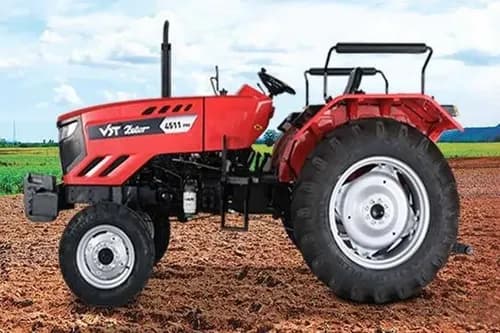Ad
Ad
Minimum Support Price: All You Need to Know
MSP stands for Minimum Support Price, which is a guaranteed amount paid to farmers by the government for their agricultural produce.
 MSP guarantees farmers a minimum price for their crops, shielding them from price fluctuations and market risks.
MSP guarantees farmers a minimum price for their crops, shielding them from price fluctuations and market risks.
In India, agriculture is the backbone of the economy, with farmers working tirelessly throughout the year to cultivate crops like rice and wheat that are vital to the country's nutrition. Yet, amidst their hard work lies a significant challenge: fluctuating market prices that often threaten their livelihoods.
This scenario can occur due to an abundance of crops during a particular season or unfavourable international prices. To address this issue and provide a safety net for farmers, the Indian government introduces Minimum Support Prices (MSPs) annually.
In the agricultural sector, ensuring the welfare of farmers and maintaining food security are paramount concerns for governments worldwide. One crucial tool employed to achieve these objectives is the Minimum Support Price (MSP) mechanism.
What is the Minimum Support Price (MSP)?
MSP stands for Minimum Support Price. The Minimum Support Price (MSP) is the price at which the government purchases crops from farmers. The government sets MSPs for 23 different crops during each cropping season. These MSPs act as a safety net, ensuring that farmers receive a fair price for their crops, even if market prices fall below a certain threshold.
Importance of Minimum Support Price
The Minimum Support Price (MSP) plays a pivotal role in safeguarding the interests of farmers, particularly in the face of numerous challenges they encounter. From adverse weather conditions such as droughts to economic disruptions like demonetization and GST implementation, farmers often find themselves vulnerable to fluctuating crop prices and escalating input costs.
Moreover, the recent global pandemic has worsened their struggles. In such circumstances, MSP serves as a lifeline, ensuring that farmers receive a fair price for their crops. This is especially crucial in regions where agriculture serves as the primary source of livelihood for a significant portion of the population. By providing stability and security, MSP not only supports farmers but also contributes to the overall resilience of rural economies.
Key Features of MSP
Price Guarantee: MSP guarantees farmers a minimum price for their crops, shielding them from price fluctuations and market risks.
Crop Coverage: MSP is primarily applicable to essential crops such as wheat, rice, pulses, oilseeds, and cotton, among others.
Procurement Mechanism: Governments procure crops directly from farmers at MSP through designated agencies such as the Food Corporation of India (FCI) in India.
Market Intervention: MSP serves as a form of government intervention in agricultural markets to ensure farmers' welfare and maintain food security.
Price Support: MSP supports farmers by providing them with a fair price for their produce, which encourages agricultural production and prevents distress selling.
Also Read: Potato Farming in India: Role of Potatoes in Indian Agriculture
How are MSPs Determined?
The Commission for Agricultural Costs and Prices (CACP) determine MSPs based on several factors:
- Production costs: Calculated at both state and all-India average levels.
- Demand and supply dynamics: Ensuring stability in the agricultural sector.
- Market trends: Reflecting changing consumer preferences and global influences.
Agricultural Production Costs
The cost of production in agriculture is crucial for farmers to know if their farming practices are financially viable. There are three main categories of production costs:
- A2 Costs: These are direct expenses like seeds, fertilizers, pesticides, hired labour, leased land, fuel, and irrigation.
- A2+FL Costs: This includes A2 costs plus the value of unpaid family labour.
- C2 Costs: The most comprehensive measure, including A2+FL costs as well as rentals and interest for owned land and fixed capital assets.
When setting Minimum Support Prices (MSPs), the government considers both A2+FL and C2 costs. However, there's debate over which formula to use. Farmer organizations prefer the C2+50 per cent formula, while the government uses the A2+FL+50 per cent formula, which doesn't cover all farming costs.
The Swaminathan Committee recommended setting MSPs at least 50 per cent higher than the weighted average cost of production. But there's confusion over the exact definition of this cost, as it wasn't clearly defined in the 2006 report by the National Commission on Farmers.
Purposes and Benefits of MSP
1. Price Stabilization
- MSPs act as a safety net, providing a floor for market prices.
- They ensure that farmers receive a minimum remuneration, covering their production costs and allowing for a reasonable profit margin.
2. Food Security
- By setting MSPs, the government incentivizes the production of key crops.
- This prevents shortages in staple food grains, ensuring a steady supply of essential food items across the country.
Crops Covered by MSP
The Minimum Support Price (MSP) framework overseen by the Commission for Agricultural Costs and Prices (CACP) encompasses a diverse range of crops vital to India's agricultural landscape. This system plays a crucial role in ensuring the stability and well-being of farmers across the country.
The CACP recommends MSPs for 22 specified crops, along with Fair and Remunerative Prices (FRP) for sugarcane. These include:
- 14 crops for the kharif (monsoon) season.
- 6 crops for the rabi (winter) season.
- 2 other commercial crops.
Here's a simplified list of crops covered under Minimum Support Price (MSP):
1. Cereals: Paddy, Wheat, Barley, Jowar, Bajra, Maize, and Ragi
2. Pulses: Gram, Arhar, Moong, Urad, and Lentil
3. Oilseeds: Groundnut, mustard, Toria, Soyabean, Sunflower seed, Sesamum, Safflower seed, and Niger seed
4. Others: Raw cotton, Raw jute, Copra, De-husked coconut, and Sugarcane
This comprehensive list reflects the government's commitment to supporting farmers and promoting agricultural sustainability across various crop categories.
Challenges and Misconceptions About MSPs
While MSPs play a crucial role in supporting farmers and ensuring food security, several challenges need to be addressed to make them more effective and inclusive. These challenges include concerns related to implementation, coverage, and market dynamics. Some of the concerns are mentioned below:
Limited Benefits: Despite MSPs announced for 23 crops, only rice and wheat get substantial procurement under NFSA, leaving many farmers without support.
Implementation Issues: Reports show only 6% of MSP reaching farmers due to poor procurement mechanisms and limited market access.
Crop Imbalance: Focus on rice and wheat MSPs leads to neglect of other crops, potentially reducing farmers' income and harming crop diversity.
Middlemen Involvement: MSP procurement involves intermediaries, creating inefficiencies and reducing benefits, especially for small-scale farmers.
Government Financial Burden: Heavy expenses on procurement and maintaining buffer stocks strain government resources, diverting funds from other agricultural and rural development programs.
Also Read: Vertical Farming In India: Types and benefits
Conclusion
The Minimum Support Price (MSP) mechanism serves as a vital policy tool for ensuring farmers' welfare, promoting agricultural growth, and maintaining food security. While it offers significant benefits such as price stability and income security to farmers, it also presents challenges in terms of market distortions and budgetary constraints.
Going forward, policymakers need to strike a balance between ensuring farmers' livelihoods and addressing the shortcomings associated with MSP, thereby fostering a sustainable and inclusive agricultural sector.
Features & Articles
Comprehensive Guide to Tractor Transmission System: Types, Functions, and Future Innovations
Learn about tractor transmission types, components, functions, and selection factors to enhance efficiency, performance, and agricultural productivity....
12-Mar-25 09:14 AM
Read Full NewsModern Tractors and Precision Farming: Transforming Agriculture for Sustainability
Precision farming enhances agriculture by integrating GPS, AI, and modern tractors for sustainable, efficient, and productive farming practices in India....
05-Feb-25 11:57 AM
Read Full NewsTop 10 Tractors Under 30 HP in India 2025: Guide
Top 10 tractors under 30 HP in India offer efficiency, affordability, and power, ideal for small farms with diverse agricultural needs....
03-Feb-25 01:17 PM
Read Full NewsNew Holland 3630 TX Super Plus vs Farmtrac 60 PowerMaxx: Detailed Comparison
Compare New Holland 3630 and Farmtrac 60 tractors by specs, price, and features to find the perfect fit for your farm....
15-Jan-25 12:23 PM
Read Full NewsSwaraj 735 FE Vs Eicher 380 2WD Prima G3: Detailed Comparison
The Swaraj 735 FE and Eicher 380 2WD Prima G3 are reliable, powerful tractors suited for various farming tasks....
14-Jan-25 09:41 AM
Read Full NewsHow to Choose the Perfect Tractor for Your Farm: A Comprehensive Guide
Choose the right tractor by assessing farm needs, horsepower, efficiency, comfort, and budget to enhance productivity and savings....
09-Jan-25 09:43 AM
Read Full NewsAd
Ad
As featured on:


Registered Office Address
Delente Technologies Pvt. Ltd.
M3M Cosmopolitan, 12th Cosmopolitan,
Golf Course Ext Rd, Sector 66, Gurugram, Haryana
pincode - 122002

























